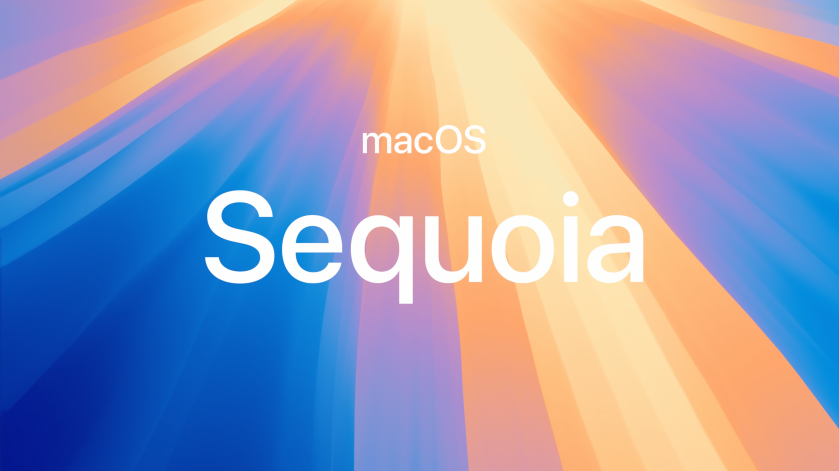Apple recently made its new operating system, macOS Sequoia, live. It brought some interesting features, like Apple Intelligence. However, only some time has passed since its release, and users along with security researchers have started reporting various issues with third-party security products and web browsers due to some firewall issues in the operating system. It places those using applications provided by CrowdStrike and SentinelOne, along with browsers like Chrome, Firefox, and Safari, in a difficult situation.
The Launch of macOS Sequoia
Apple made the release of macOS Sequoia on September 16, an update that brought a number of improvements and other new features with it for the users. However, the update also managed to bring a host of problems along with it upon its release, most of which included security software. A report stated that new firewall settings together with changes to the network stack in macOS Sequoia are causing third-party security tools to malfunction, leaving users exposed to attacks.
TechCrunch reports that those from CrowdStrike, SentinelOne, and ESET are among the worst-hit security tools. Users have taken to social media platforms like Reddit and channels on Slack to voice their frustration and experiences about these problems. And to further rub salt into wounds, security researchers found other problems affecting DNS settings and browsing for users reliant upon Google Chrome or Mozilla Firefox.
Security Software Badly Affected by Firewall Issues
CrowdStrike and SentinelOne were among those leading cybersecurity solution providers to move fast in order to address user concerns. A CrowdStrike sales engineer wrote to a Mac Admins Slack channel that the issue appears to be related to changes in the network stack introduced by macOS Sequoia. He further added that support for Sequoia will be delayed on their part until Apple fixes the underlying issues. This includes ESET, which warned its users to shift to the most recent editions of whatever their respective software was to avoid compatibility with macOS Sequoia.
If any of these third-party security utilities are utilized, it becomes important to reach out to developers or customer support with the need for updated versions compatible with macOS Sequoia. Meanwhile, you’re probably best staying with macOS Sonoma, some security experts have suggested.
Web Browsers Affected by Firewall and DNS Issues
While those issues have fallen more on third-party security utilities, there have also been complaints about problems with the Google Chrome and Mozilla Firefox web browsers. Now, security researcher Will Dormann took to Mastodon to report that DNS requests can be interfered with via the firewall settings in macOS Sequoia; effectively blocking replies. The result has been some apps-including Chrome-fail to process large downloads correctly when incoming connections are blocked by the firewall.
Over at Reddit, too, users have complained of similar issues with Firefox. “I could not configure the firewall to accept incoming connections for the browser, found a workaround,” said one user. Those fixes, however, fiddling with the settings of their firewall and opening up a vulnerability that many are not willing to open.
Another security researcher, Waclaw Jacek, said that he too found there were issues with firewall configuration in macOS Sequoia. He explained that sometimes, the operating system’s own firewall can block web browsing altogether. That’s a major concern for users who use third-party browsers, because they may have to poke holes in their firewalls just so their systems work the way they’re supposed to-and that’s something that introduces obvious security risks.
Is Apple Aware of the Issue?
Apple has acknowledged the challenges that face users and third-party developers alike and reportedly is on a fix. However, with macOS Sequoia having just started early rollout stages, there are bound to be some missteps in general compatibility that will take some time to iron out. Apple will no doubt fix these in future updates; until then, users will need to be extra careful, especially for those reliant on third-party security tools and non-native browsers.
Workarounds and What You Can Do
If you’re experiencing issues with macOS Sequoia, several steps can help mitigate the impact until Apple releases an update:
- Update Your Security Software: Check for updates from your security software provider. Both CrowdStrike and ESET have issued advisories on updating their software to be compatible with macOS Sequoia.
- Stick with macOS Sonoma: If you haven’t yet upgraded to Sequoia, you may want to stay with macOS Sonoma until these issues are resolved.
- Adjust Your Firewall Settings: As pointed out by security researchers like Will Dormann, adjusting your firewall settings to allow specific incoming connections may help. However, this could open up your system to risks, so proceed with caution.
- Check Reddit and Slack Channels for Updates: Keep an eye on forums like Reddit or Mac Admins Slack for the latest insights from users experiencing similar problems. These platforms often provide helpful workarounds until official updates are released.
What’s Next for macOS Sequoia?
As the release of macOS Sequoia further reaches out, get ready for subsequent updates and patches. If you rely on third-party security tools or use browsers such as Google Chrome or Mozilla Firefox, keep yourself updated and check compatibility updates regularly. Until then, it’s best to not make any changes within the firewall that may weaken your system’s security.
Without the issue being quickly patched by Apple, more people will most likely be holding off upgrading to macOS Sequoia, because researchers and security software providers have sounded an alarm.
So, watch this space for updates and also head over to the official Apple Support channels to await when a much more stable release of macOS Sequoia is ready. Meanwhile, following the steps above minimizes the inconvenience without leaving your system wide open.
More News: Tech News


